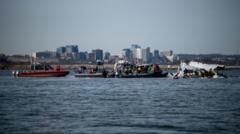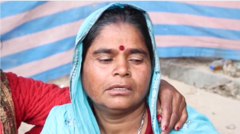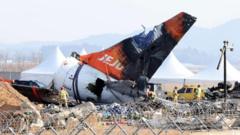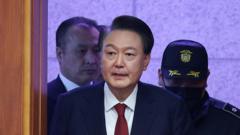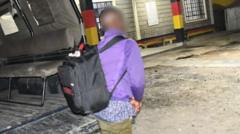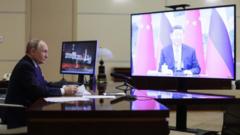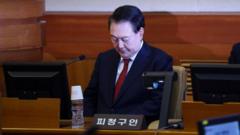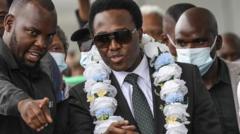Seoul’s political landscape is heating up as investigators seek to question President Yoon Suk Yeol over his controversial martial law declaration, which has led to a massive political crisis.
South Korea's Political Turmoil: President Yoon Faces Insurrection Charges

South Korea's Political Turmoil: President Yoon Faces Insurrection Charges
Authorities move to detain President Yoon Suk Yeol amid martial law controversy, igniting protests.
In a dramatic turn of events, South Korean officials attempted to detain President Yoon Suk Yeol on Friday, following his declaration of martial law that has thrust the country into political upheaval. This unprecedented move, the first of its kind in 45 years, raised alarms and ignited a chorus of criticism against Yoon, with allegations of insurrection now hanging over his presidency.
Despite multiple summons to appear before investigators from the Corruption Investigation Office for High-Ranking Officials, President Yoon has remained defiant, insisting that his actions were within his presidential authority. In response, hundreds of his supporters have gathered outside his residence, promising to obstruct any attempts at his detention. The authorities, aware of the escalating tensions, have deployed police officers to maintain order and prevent clashes.
On Tuesday, the independent investigative agency obtained a court warrant to detain the president, marking a significant escalation in the political drama. However, if officials wish to formally arrest him and keep him in custody, they will need to apply for an additional court warrant, setting the stage for a complex legal battle ahead.
As the city holds its breath, tensions mount, and the trust in the country's leadership continues to fracture, the implications of these events are sure to reverberate beyond the compound of the president in Seoul.
Despite multiple summons to appear before investigators from the Corruption Investigation Office for High-Ranking Officials, President Yoon has remained defiant, insisting that his actions were within his presidential authority. In response, hundreds of his supporters have gathered outside his residence, promising to obstruct any attempts at his detention. The authorities, aware of the escalating tensions, have deployed police officers to maintain order and prevent clashes.
On Tuesday, the independent investigative agency obtained a court warrant to detain the president, marking a significant escalation in the political drama. However, if officials wish to formally arrest him and keep him in custody, they will need to apply for an additional court warrant, setting the stage for a complex legal battle ahead.
As the city holds its breath, tensions mount, and the trust in the country's leadership continues to fracture, the implications of these events are sure to reverberate beyond the compound of the president in Seoul.

